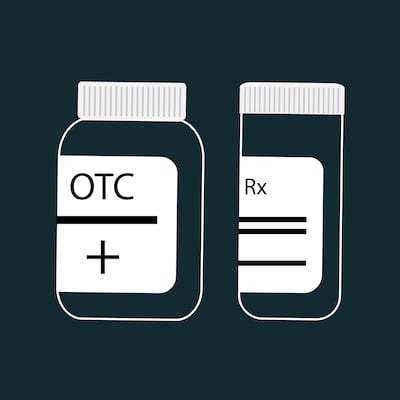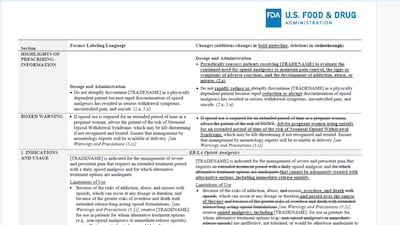Post-Marketing Regulation & Studies
Amgen's refusal to voluntarily withdraw the rare disease treatment could force the FDA to employ its formal process to remove it from the market.
Two flu vaccine labels already include febrile seizure in the clinical trial and postmarketing experience sections of the label, but the FDA wants all of them to add a warning of the adverse event.
The US FDA’s comprehensive review found no increased risk of suicidal ideation and behavior with the use of GLP-1s to treat obesity, leading the agency to request existing warnings based on older drugs be removed from labeling.
The FDA outlined its plans for “Sentinel 3.0,” including a data hub that would speed queries, during PDUFA VIII negotiations as industry questions whether user fee revenue should continue funding the program.
Medical device sponsors can use real-world evidence without submitting identifiable patient-level data under a new guidance that is expected to expand to drugs and biologics.
As differences emerged between FDA staff and senior political leaders over its COVID-19 safety review, CBER Director Vinay Prasad added an old colleague and critic of US COVID-19 policy to the center.
The FDA included storage and handling instructions common in labeling in its approval announcement, suggesting concerns remain about the potential for NDMA to form after products are distributed.
Incentives are “probably the only solution” to encouraging companies to optimize cancer drugs, but this will require funding and systemic changes, the chair of the European Medicines Agency’s oncology working party says.
After 10 years of adding suffixes to all new biologic and biosimilar nonproprietary names, FDA officials are considering whether it is still necessary for pharmacovigilance purposes.
After two deaths tied to the gene therapy, Sarepta and the FDA agreed to new labeling for Elevidys, adding a black box warning about liver injury along with suggested liver and cardiac monitoring.
Real-world evidence (RWE) studies in India face challenges like lack of data reliability and uniformity and absence of clear guidelines but firms like Bharat Serums have scored a regulatory win. Pink Sheet examines the RWE landscape and the BSV case study for lessons in beating the odds
The approval is more limited than hoped, but GSK said further studies will help make Blenrep a major treatment in multiple myeloma.
The Senate “SMART OTC” Act would require the FDA to identify product categories that could be eligible for an Rx-to-OTC switch and create a framework to work with sponsors.
Drug companies are being urged to review their internal processes to ensure compliance with new requirements in the EU’s variations guidelines, which take effect in January 2026.
A new guideline finalized by the International Council of Harmonisation is expected to reshape how non-interventional drug safety studies use real-world data, bringing clarity, consistency, and global alignment.
Intercept will voluntarily take Ocaliva off the market at the request of the US FDA, which put the clinical trials of the primary biliary cholangitis drug on a clinical hold.
CBER Director Vinay Prasad wants the American public’s concerns about a possible link between spike protein and post-vaccination syndrome answered, while also demanding larger immunogenicity studies and new pragmatic trials to support coadministration with other vaccines.
The CBER director rejected Pfizer’s assertions that pediatric dosing gaps, supply constraints and comparative mRNA content justify keeping the vaccine under emergency use authorization for younger children.
Quantitative estimates of the safety risks with opioid pain medication, including the risk of addiction and misuse, must be added to labeling.
A Duke-Margolis working group is developing ideas to enable non-profit firms to seek US FDA approval for new indications for off-patent medicines. The former acting commissioner thinks citizen petitions might be the fastest route.




















